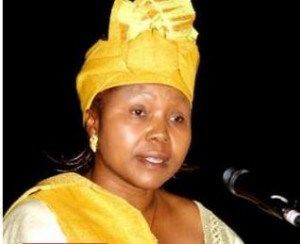
Yesterday was the International Women’s Day.
BY PHYLLIS MBANJE
Celebrations were held in honour of women’s social, political and economic achievements.
Speeches were read about gallant members of the fairer gender and glitzy events overflowed with champagne in Western capitals. Running under different themes like Inspiring Change, Equality for Women is Progress for All, this year’s International Women’s Day (IWD) celebrations were no different from the previous ones.
However, the situation for most women in developing countries remained dire.
In Zimbabwe, women’s organisations, activists and sympathisers also gathered in different areas and circles to mark the event which however was all lost on the very people it was honouring.
Zimbabwe’s theme this year, Celebrating Women’s Day through Constitutional Provisions rang empty in the face of abject poverty, suffering, domestic violence and social structures that do not recognise women’s rights.
Women at the Chingwizi transit camp in Masvingo were grappling for mere survival. The women at this camp of despair who along with their children and husbands were displaced in their thousands by the Tokwe-Mukosi floods, are struggling for basic needs like sanitary ware, food to feed their families and water to drink and bathe.
Their voices are drowned; their plight paled and dimmed in the bright lights of the world class events that were held in hotels and resorts. Today, Zimbabwe has the highest maternal death rate of over 900 per 100 000 live births and since the beginning of the year, 42 women have died while giving birth.
March 8 was also just another ordinary day for many more women in rural areas of Zimbabwe. Most of them have no idea there is such a day that purports to honour and celebrate them and their situation remains the same year after year despite the global celebrations.
The Zimbabwe Gender Equality index indicates that there is a large gap between men and women’s development. Although several pieces of legislation have been put in place to address some of the disparities, these are barely implemented.
Msasa Project director, Netty Musanhu said the challenge was on the implementation of the existing laws. She challenged women to demand their rights, a move she said would help release them from bondage. “Women need to critically examine the Constitution and the provisions that apply to them,” she said. “They need to demand the implementation of those laws.”
Musanhu, however, blamed her kith for not taking the initiative of empowering themselves through reading.
“The first step in empowering oneself is getting information and this is done through reading. Many women do not bother to read even a newspaper. How then will they be able to know about these laws that can actually change their circumstances if they are not interested in reading?”
She added: “Women should be celebrated every day and not on March 8 only.”
Minister of Women’s Affairs, Gender and Community Development Oppah Muchinguri last week said her ministry had several projects lined up that would benefit women.
“Poverty is still a challenge and many women have no access to means of production. That has to change,” she said.
Speaking on the eve of the IWD, United Nations Under-Secretary-General and executive director of UN Women, Phumzile Mlambo-Ngcuka said progress had been slow and women and girls still faced complex challenges.
UN secretary-general Ban Ki-moon said countries with more gender equality have better economic growth and companies with more women leaders perform better.
The first IWD was held in 1911 in honour of 1908 garment workers’ strike in New York, USA where women protested against poor working conditions. It has been marked by the UN every year since 1975. The day has been declared a public holiday in countries like Russia and Ukraine.











